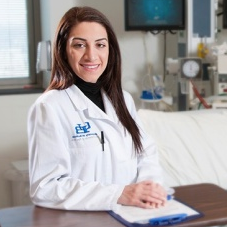Article
Pacifier-Sucking Parents Could Help Prevent Their Infants from Developing Allergies
Author(s):
Sterilizing or hand washing pacifiers doesn’t have the same allergy-suppressing benefits as sucking on them, according to new research.
Parents who clean their infants’ pacifiers by sucking on them could be helping their children achieve lower allergic responses and prevent the development of allergies, according to new data presented at the American College of Allergy, Asthma and Immunology (ACAAI) annual meeting in Seattle, WA.
In a survey of 128 mothers, those who cleaned their children’s pacifiers by sucking on them appeared to suppress serum IgE levels beginning around the time their child reached the age of 10 months (P=.048), with continued divergence through the time their child reached age 18 months (P=.014). IgE is a type of antibody related to allergic responses in the body. With some exceptions, higher IgE levels indicate a higher risk of having allergies and allergic asthma.
The same suppression was not seen in children whose mothers reported cleaning pacifiers by other methods. Of the 128 mothers who completed the survey when their child reached 6-months old, 74 (58%) reported current pacifier use. Of these, 30 (41%) reported pacifier cleaning by sterilization, 53 (72%) reported hand washing the pacifier, and 9 (12%) reported parental pacifier sucking. According to the study, pacifier sterilization or hand washing were not associated with serum total IgE trajectory. Moreover, a significant time interaction was detected for pacifier sucking (P=.079), indicating that the trajectory shape differed between children of pacifier-sucking versus non-pacifier sucking parents.
>> Medicine moves faster every day. Stay ahead with the MD Mag newsletter.
“We found that parental pacifier sucking was linked to suppressed IgE levels beginning around 10 months, and continued through 18 months,” said study co-author Edward Zoratti, MD, of the Henry Ford Health System in Detroit, MI. “Further research is needed, but we believe the effect may be due to the transfer of health-promoting microbes from the parent’s mouth. It is unclear whether the lower IgE production seen among these children continues into later years.”

Elaine Abou-Jaoude, MD
The study corroborates results from a previous study published by investigators at the University of Gothenburg in Sweden in 2013, which also suggested that parental sucking of infants pacifiers may reduce the risk of allergy development, “possibly via immune stimulation by microbes transferred to the infant via the parent’s saliva,” according to the authors.
In that study, children whose parents cleaned their pacifier by sucking it (N=65) were less likely to have asthma (OR .12; 95% CI .01-.99) eczema (OR .37; 95% CI .15-.91) and sensitization (OR .37; 95% CI .10-1.27) at 18 months of age than children whose parents did not suck on their children’s pacifiers (N=58).
Although Zoratti et al’s study could not conclude whether lower IgE production seen among children whose parents suck on their pacifiers continued into later years, the Gothenburg study saw continued protection against eczema through 36 months (HR .51; P=.04). Moreover, the salivary microbiota differed between children whose parents cleaned their pacifier by sucking it and children whose parents did not use this practice.
In the more recent study, researchers collected maternal-child pairs who were identified in the Microbes, Allergy, Asthma and Pets cohort (N=141), and investigated whether pacifier cleaning methods reported at 6-months of age were associated with differences in serum total IgE over the first 18 months of life. Linear mixed effect models were used to model log-transformed total IgE trajectories.
“We know that exposure to certain microorganisms early in life stimulates the development of the immune system and may protect against allergic diseases later,” said the study’s lead author Elaine Abou-Jaoude, MD. “Parental pacifier sucking may be an example of a way parents may transfer healthy microorganisms to their young children. Our study indicates an association between parents who suck on their child’s pacifier and children with lower IgE levels, but does not necessarily mean that pacifier sucking causes lower IgE.”
The study, Association Between Pacifier Cleaning Methods and Child Total IgE, was presented November 16 at ACAAI in Seattle.





